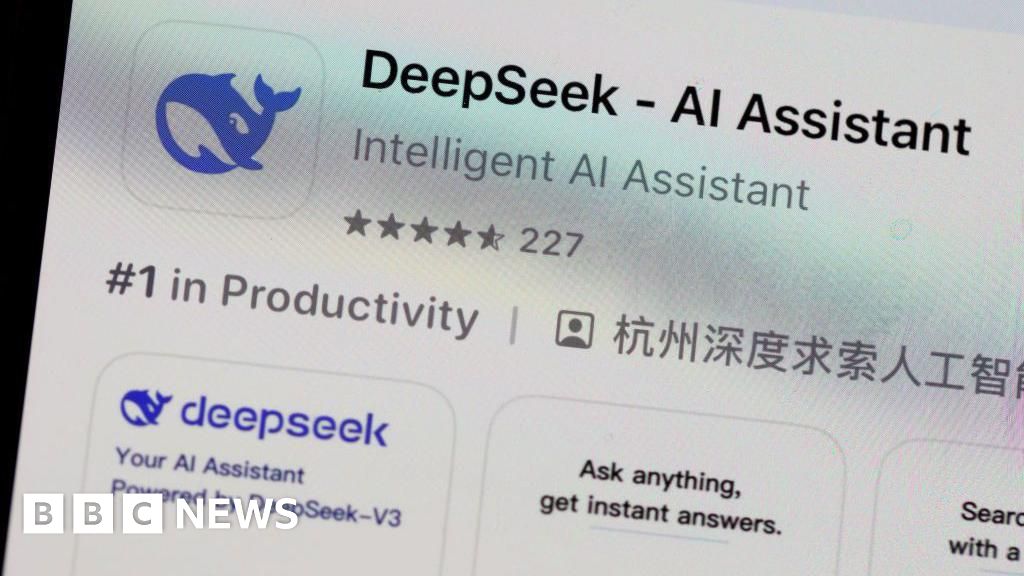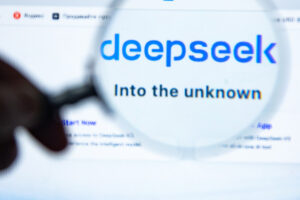Australia Issues Warning About DeepSeek

Privacy Concerns Surrounding DeepSeek: An Overview
Introduction to DeepSeek
DeepSeek is a Chinese chatbot that has recently gained significant attention in both tech markets and government circles due to its rapid rise in popularity and the associated privacy concerns. Amidst the excitement surrounding its capabilities, experts and officials have raised alarms about data privacy and security implications. Australia’s science minister, Ed Husic, has notably expressed these concerns, marking a pivotal moment for discussions about the app’s impact on user data.
Rising Popularity of DeepSeek
Since its launch, DeepSeek has rapidly climbed the app store rankings, with estimates suggesting it has amassed around 3 million downloads. According to market analysts from Sensor Tower, a staggering 80% of these downloads occurred in just the past week, significantly outpacing rivals like Perplexity.
Government Concerns and Responses
Despite the enthusiasm among users, notable figures in government have started to scrutinize the app. Donald Trump referred to DeepSeek as a "wake-up call," indicating the need for a closer assessment of its implications, although he did not classify it as an immediate national security threat. On the other hand, Husic emphasized the necessity to evaluate the app’s impact on data management and privacy thoroughly.
U.S. officials are also taking a closer look at DeepSeek. White House press secretary Karoline Leavitt noted that the National Security Council is investigating the app’s potential ramifications on national security. Furthermore, reports indicate that the U.S. Navy has prohibited its personnel from using the app over concerns of data security and ethical implications.
Data Collection Practices of DeepSeek
According to DeepSeek’s own privacy policy, the app collects a considerable amount of personal data, which is stored on servers in China. This data may include:
Personal Identifiable Information:
- Email addresses
- Phone numbers
- Dates of birth entered during account registration
User Inputs:
- Conversations, including both text and audio
- Chat histories
- Technical Information:
- Device model and operating system
- User IP addresses and keystroke patterns
DeepSeek claims it utilizes this information to enhance the application’s safety and performance. However, this data may also be shared with various parties, including service providers and corporate partners.
Privacy Risks Highlighted by Experts
Lauren Hendry Parsons, a digital privacy advocate at ExpressVPN, pointed out significant concerns around the privacy policy, particularly the clause stating that data may be utilized to identify users’ actions outside the immediate service. This should raise red flags for anyone worried about their privacy.
While the data collection practices of DeepSeek are alarming, experts have noted that similar policies exist across many popular platforms, including ChatGPT and Gemini. Therefore, users may already have consented to comparable data usage agreements with other services.
Evaluating the Safety of Using DeepSeek
Given the potential risks associated with using DeepSeek, questions have arisen regarding its safety. Emily Taylor, CEO of Oxford Information Labs, stated that inquiries made through open AI models can be accessed by developers, which poses risks, especially for users dealing with sensitive information.
Dr. Richard Whittle from the University of Salford echoed similar concerns, urging consumers to remain cautious. With the increasing hype surrounding DeepSeek, it’s essential for users to balance their curiosity against the risks involved in sharing personal data with such applications.
Public Awareness and Regulatory Measures
The UK’s Information Commissioner’s Office has advised users to be aware of their rights concerning the use of their personal information for training AI models. The office highlighted the need for generative AI developers to provide clear and accessible information regarding how personal data is utilized, ensuring that users can exercise their rights effectively.
DeepSeek’s situation represents a crucial moment for discussions surrounding privacy in the age of AI, urging stakeholders to promote transparency and accountability while addressing user concerns.





